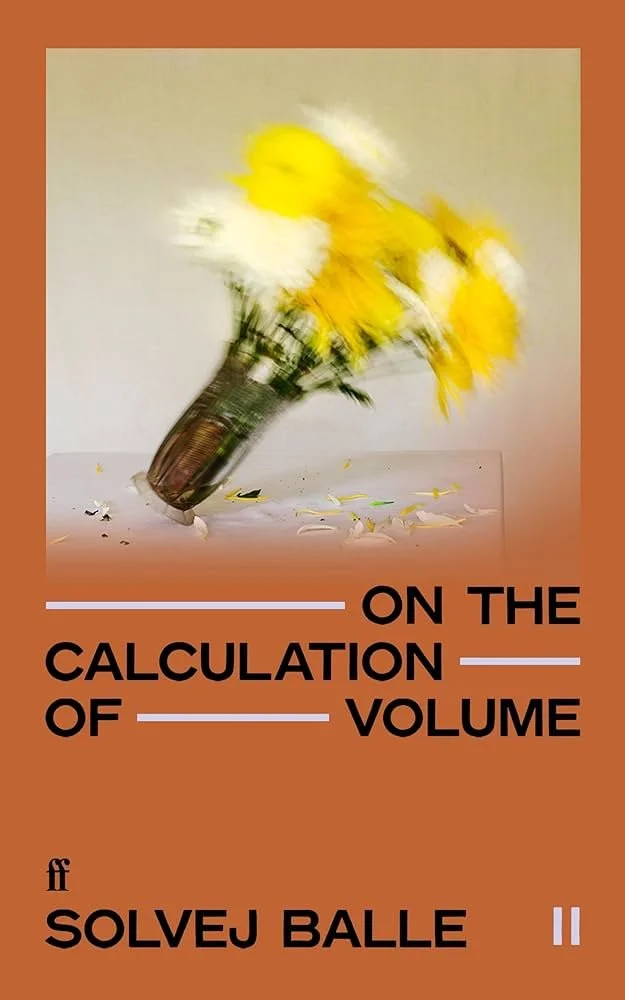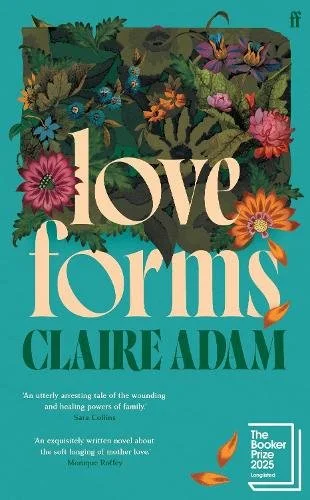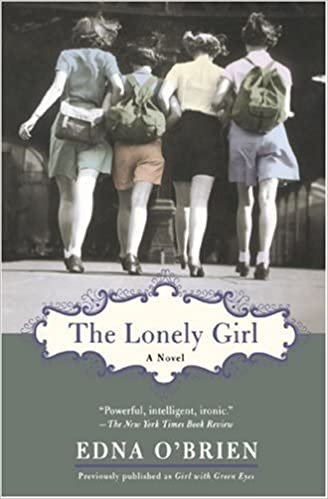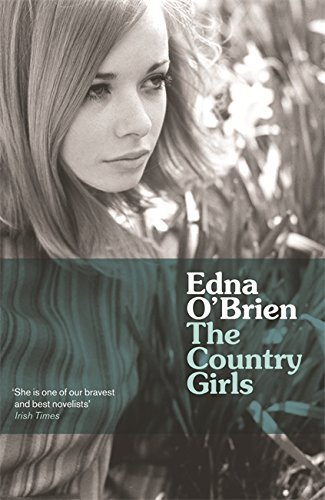I was naturally drawn to reading this novel because when I was younger I loved movies about time travel such as 'The Time Machine' (1960), 'Somewhere in Time' and 'Back to the Future'. Of course, there's also 'Groundhog Day' and Balle's novel also features a protagonist caught in a time loop. Such sci-fi stories are pleasurable brain-teasers, but they also get us to think outside the boundaries of ordinary reality and our subjective experience of the world. Balle's novel begins on the 121st day Tara Selter has experienced November 18 and we follow as she evades meeting her husband Thomas in their own home. She goes on to explain that this bizarre occurrence first started while she was away on a work trip and how she's come to this point. She continues to document her experiences until she's spent a year of her life in November 18. Unlike 'Groundhog Day' she grows older and changes though everyone else wakes up to this day (apparently) exactly the same and as if they've never experienced it before.
To me, Balle's novel functions on two levels...
On the first level there is the plot and how time has “fallen apart” for Tara. There's much intrigue which arises from her predicament regarding why this is happening and the “rules” of her time loop since the effect she has upon objects isn't always consistent. It's curious to follow her experimentation over the course of a year from staying awake as long as possible with her husband Thomas to meticulously taking notes and memorising what's happening around her to keeping certain objects close by to see if they'll return to their original positions when Nov 18 restarts. It appears that anything which becomes materially connected to her such as food remains gone when the day restarts, but there are also physical objects such as certain books and a telescope which she's able to keep (whereas others such as an ancient Roman coin and some books she purchases return to their original positions.)
There are also some other questions I'm left with and experiments I wish Tara had conducted over the many days. I'm somewhat unclear about what moment Thomas returns to his “starting position” in bed on Nov 18 given that the couple successfully stay awake together into the 19th. Tara notes how at one point Thomas forgets everything she's told him and what they've experienced throughout the 18th, but I don't think she records when she falls asleep during this process or how far into the 19th she ever makes it. On her first time experiencing November 18th she gets burned and this heals over time. Though she physically changes I'm curious about what physical effect she can have upon other people and animals from day to day. If she cut Thomas would he still have that wound the next day? Leeks disappear from the garden when she eats them, but would her effect on other living things like trees or animals also carry over into the next day? When she returns to Paris later on and notices a dog tied up outside of a shop I wondered what would happen if she took that dog. Would the dog still be there in her hotel room the next day if she keeps it with her? Given that the things she purchases and eats from the kitchen in her home and local shops disappear after she's consumed them I also wondered if anyone notices these disappearances. Surely Thomas might notice a thing or two missing which he expects to find in the kitchen and a shop would notice that their stock has been massively reduced. But these reactions or lack of reactions aren't recorded by Tara. She notes at one point that no matter what she spends her bank account remains the same so I wondered what would happen if she added to her finances by gambling or playing the lottery when she knows what the results of these will be on Nov 18. If she did so, would that additional money still be with her or in her account the next day?
Although I wondered about all these questions while reading the novel the fact that they weren't pursued by Tara didn't spoil my enjoyment of the story. I'm sure there are innumerable experiments or theories she could have pursued but finding the ultimate answer for why this is happening or how it works doesn't feel that important (at least not to me.) Any overall explanation for how or why this is happening would probably feel unsatisfying anyway. The fact that I'm musing upon it just shows that I was engaged by the theoretical problem of the novel and Tara's plight. I felt like I really went on a journey with her as she grows increasingly anxious over the year about how she can escape from this time loop. If she is caught in it forever and as she is aging surely there will come a day when she becomes so old Thomas won't recognize her anymore or she might die (and presumably the recurrence of Nov 18 will stop.) This brings me onto how this novel also raises larger issues about existence, life and relationships...
On the second level there are many larger philosophical and symbolic questions which arise from Tara's condition in this novel. This book has prompted me to read HG Wells' classic “The Time Machine” for the first time (even though I'm already familiar with its story through the film adaptation.) In it The Time Traveller (as he's referred to) raises the point how humans normally only think about the three dimensional nature of reality. However, there is also the fourth dimension of time which we don't usually factor in because “our consciousness moves intermittently in one direction along the latter from the beginning to the end of our lives.” Tara's dilemma is that she is trapped in everyone else's present time while she herself is progressively moving towards the end of her life. As such her mentality changes throughout the days and months which pass only for her. So the story considers how we relate to time in both a material and mental way. Also, the volume of objects are typically measured by multiplying their three dimensions. Given that Tara experiences a disruption of the fourth dimension the title of this novel suggests that time also has an impact upon our material reality.
I find all the science behind our material relationship to time really interesting (although I only understand the bare basics of it.) Due to gravitational time dilation, it's a fact that time goes faster the farther away you are from the earth's surface. Even though humans can only experience this to a tiny degree it's interesting to consider. Of course, for Tara time isn't moving faster or slower but on a loop. There's also the fact that we only get her subjective experience of this phenomenon. Does everyone else in the world go through to November 19 but Tara is pulled back to the beginning of November 18? Are there a series of multiverses where everyone else is living a different future based on Tara's actions on the 18th? Or is Tara the only one experiencing the future while everyone else and the world itself is caught in a loop? I enjoyed how the novel raises these interesting questions while not answering them.
Tara's experience immediately made me think of the circumstances of lockdown during the recent pandemic. Primarily staying inside had the bizarre effect where every day felt the same. I also became attuned to patterns of my husband's behaviour and the environment of my home (when the mail arrives/the routines of neighbours/the way sunlight changes in different rooms at that particular time of the year) in ways I wasn't previously because we'd go to our respective work spaces. I also felt thrown out of time so that my meal routines changed. Sometimes I'd forget to eat when getting up and find myself having cereal early in the afternoon. So Balle's story had a poignancy in thinking how our experience of the world changes when we have an enforced stasis like this. It also raises an awareness of everything that occurs in the world without our knowledge because we are in our own subjective experience. However, Tara is able to learn about all the things she wasn't previously aware of because she was in her own day - before that day became the only day.
The story also made me think about the nature of relationships. It feels significant that Tara is away from home when the loop starts occurring. I was also struck by the fact that both Tara and Thomas' names begin with T and their business is T. & T. Selter. So it appears like there is some sort of doppelgänger or mirroring situation going on, but Tara becomes the anomaly who changes while her husband stays the same. It's quite sweet at first that they get lost in the “fog” of days enjoying each other's company – although she has the annoyance of needing to explain to him every morning about her condition. There's a great love and intimacy between them. However, this isn't sustainable and Tara gradually moves into the guest room and eventually into another local house entirely. I was struck by the lines: “Thomas has a set pattern in his house... It is his pattern and I have no place in it.” In a way, the story feels like an interrogation of romantic relationships. What happens to a couple when one person stays the same and the other steadily changes? Even if a couple is happy would that happiness endure if they were forced to re-experience the same day over and over? Tara grows to feel so alienated from both Thomas and the immediate world around her that she comes to think “Thomas is the ghost and I am the monster.”
From the tone of the beginning of the novel I immediately wondered if Thomas was dead and her experience of him being caught in an eternal present was a sort of magical thinking on her part. So there's a poignancy to this as she notes the routine and all of Thomas' movements. But it's also creepy! It's frightening to consider from Thomas' point of view what it'd be like to be monitored without his knowledge in this way. From Tara's account Thomas seems to fully accept her condition and he only raises objections when she starts spending more time away from their home and devising a way to break out of the routine by returning to Paris. It'd be curious to consider what would have happened if he did journey with her. Would he still be there when she woke up in her hotel room again? I wonder if his objection to her leaving and refusal to join her was an intended part of the story's meaning or if it'd have created a technical difficulty with Balle's plot leading it to a place she didn't want it to go.
I thought it was interesting how Tara begins to think of herself as a monster as she is relentlessly consuming and taking from the world while everything that's consumed by others is restored when the day restarts. This made me think about our concerns over the environment and a consciousness about our own carbon footprint. From a certain frame of mind it's difficult not to anxiously feel like every individual is negatively impacting the planet and must minimize their damage. However, Tara eventually reasons “I do not take much from this world, I think to myself, not when you consider its size... That's how little the monster is. That's how little difference I make to the world. That's how little the activities of one person matter on the eighteenth of November.” It was fascinating how her predicament leads to meditations about the micro vs the macro (Tara as one small individual vs the universe.) This reminded me of “Solenoid” as at one point the narrator of that novel inhabits the consciousness of a dust mite. However, Tara starts to take comfort in studying the stars, movement of sky and the constancy of the moon: “The heavens are vast and untouchable, the universe opens up and you become an insignificant little monster taking tiny bites out of a gigantic world.”
Part of me is attracted to the idea of being caught in a time loop where I'm not subject to the responsibilities of daily life and being able to spend endless time looking at the night sky – or reading everything I want! Of course, there are major downsides to it as well as Tara discovers. So the story has made me think about the tension between carving out personal time for myself versus engaging with life in the larger world. For a relatively simple concept, Balle's story yields a lot to meditate about and I think that's due to the skill of her prose which embeds the reader so firmly in Tara's consciousness and reasoning. The style of writing is quite straightforward with many declarative sentences as she enumerates the facts and this has the effect of insisting on the fact of her evolving reality and emotional state which is in opposition to the rest of the world.
This is the first book in a planned series of seven novels. I'm very curious to see where it goes next – especially as this first novel ends with a sort of cliffhanger. However, I have reservations about whether my interest will continue throughout all seven books. I assume Balle has a large outline and plan since she's declared there will be this amount of books and she's working writing the final two at the moment. So hopefully she'll be able to sustain the momentum. Regardless, I'm very glad I read this novel as it was very enjoyable and it's left me a lot to mull over.





















